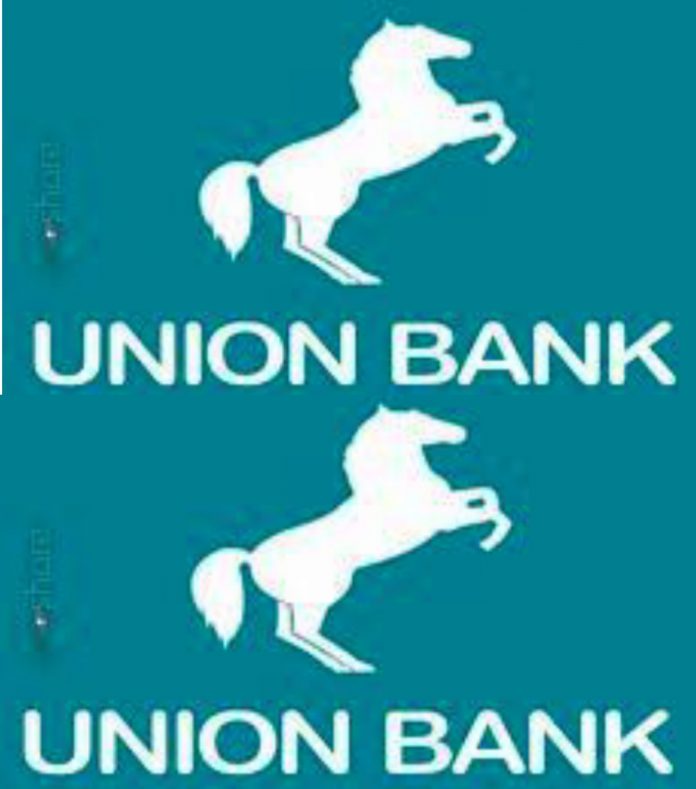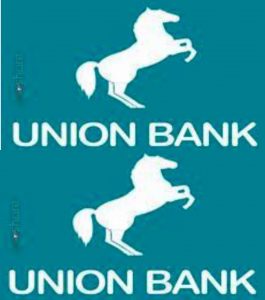Union Bank logo
By Abdullahi Abubakar
A Lagos High Court has ruled against Union Bank for selling a property used by Otunba Adedoyin Olayide Ogunde, a deceased Union Bank customer, as collateral for a loan taken in 1995, as fraudulent.
Justice I.O. Harrison of Court 18, Lagos State High Court, delivered a judgement in a case instituted by the beneficiaries of the estate of Ogunde against the bank on May 31.
Ogunde, the owner of the buildings, died in 1997. He had not liquidated a N7 million loan taken from Union Bank on May 23, 1995 and for which he had mortgaged his compound of buildings located at 6 Moore road, off Bourdillion Road, Ikoyi, Lagos State. Ikoyi is a pricey area in Lagos that is home to multibillionaires.
First page of the judgement.
The property consisted eight units of four-bedroom flats and a penthouse, a 10-bedroom family house and a three-storeyed building consisting 3-bedroom flats.
To recover its money, the bank sold the property through a private treaty without a recourse to the procedural steps dictated by applicable mortgage laws.
Before his death, Ogunde had prepared a final will and appointed some individuals as personal representatives and executors of the will.
Ogunde mortgaged the property as a single entity. But the bank divided it into pieces and sold it to different buyers as different entities. Meanwhile, the bank had told the deceased’s personal representatives that it was not going to partition the property before sale because it was mortgaged as a single entity.
With the knowledge of the personal representatives, the bank sold the mini estate while Ogunde’s children were mostly infants.
When they became of age, they asked the court to declare the sale of their father’s property by the bank illegal.
Several years after the case, numbered LD/2624/1999, was originally filed, the trial commenced on September 18, 2018, according to the certified true copy of the judgement.
In the suit, the Ogunde family contended that the sale and the processes relied on by the bank to dispose of their benefactor’s property was characterised by fraud and collusion.
Represented by O.V. Ekundayo, a legal practitioner, the family told the court that the assets were of a higher value than what the bank placed on it, and that there was a collusion between the bank and the purchasers.
Built on 2.2 acres of land, the bank partitioned the property into Plots 6A, 6B, 6C and 6D. Plot A had nine flats and eight-roomed boys-quarters and sold to Cletus Ibeto, the chairman of Ibeto Group, a local company involved in cement production and other products, at an undervalued price of N30 million.
The bank sold Plot B, with four units of four-bedroom flats and two-bedroom boys-quarters thereon, to Ogundayo Osundayo. The third plot, consisting four units of four-bedroom flats and two-bedroom boys-quarters, was sold to Wright. The last portion, Plot D, consisting three units of two-bedroom flats and an unstated number of boys-quarters, was sold to Unigate Investments. Together undervalued, these were sold for N30 million.
The mere fact that Ogunde defaulted in repaying the loan was no valid excuse for the bank to fling his property at ridiculous rates simply for the purpose of realising the debt owed; and doing so at a price that is so low is evidence of fraud, the court ruled.
It further concluded that the bank had a lawful duty to deal with the property in good faith.
“The only obligation incumbent on a mortgagee under a power of sale of his mortgage is that he should act in good faith,” the judge said. “The court will always be on the lookout that the mortgagee acts bonafide and observes reasonable precautions to obtain not the best price, but a proper price.”
By the sale of Plot 6A, the bank had fully realised its money and had some balance to remit to the family. Without remitting the balance, it went ahead to sell the rest of the buildings.
By going against what it had told Ogunde’s personal representatives on the partition of the property, the court ruled that it was an argument that “does not hold water”.
“It smacks of fraud, collusion and definitely does not show good faith,” the court said.
“The court cannot comprehend why the 6th Defendant (Union Bank) went ahead after the sale of Plot 6A for N30,000,000.00 (Thirty Million Naira) (wherein it had realized its debt, interest and costs and there was still a balance ensuing to the deceased’s estate), to sell Plot 6B, 6C and 6D. Obviously, the intention was not to realize any outstanding indebtedness as none existent at that point. The court cannot help but find that the 6th Defendant acted recklessly and in bad faith.”
Union Bank further failed accountability principles when it withheld vital documents, including the deceased’s statement of account, from the court, showing that those documents, if produced, could have impacted negatively on the bank.
The judge also concluded that the buildings were grossly undervalued in the light of available market research surveys carried out in relation to similar properties at the time.
While the court did not set aside the transactions because no evidence showed there was a collusion between the bank and the purchasers, it ordered the bank to pay the family N112,050,000 being the difference in what could have been realised had the property not been undervalued by the bank.
The bank was also ordered to an annual interest of 10% on the said amount from 1998 till the delivery of the judgement and from the date of judgement until the whole money is fully paid.
When NATIONAL WAVES contacred Funmie Aluko of the Corporate Communications department of Union Bank, she declined comment on the grounds that its already a matter of litigation.


